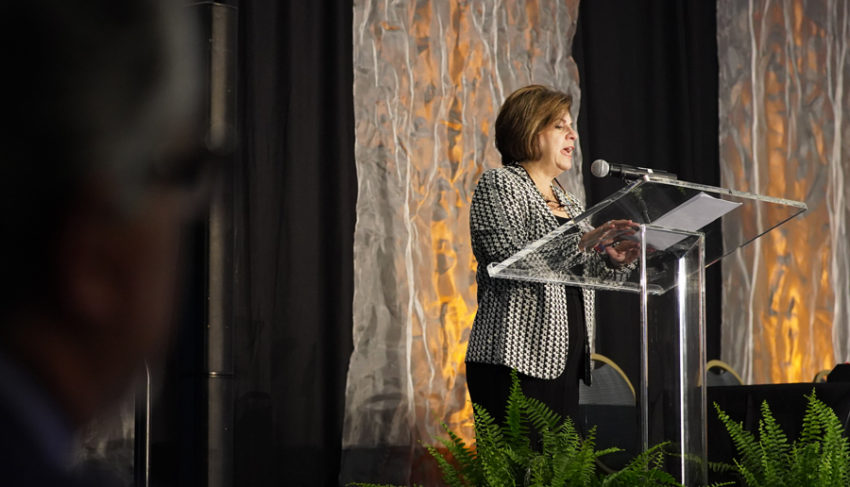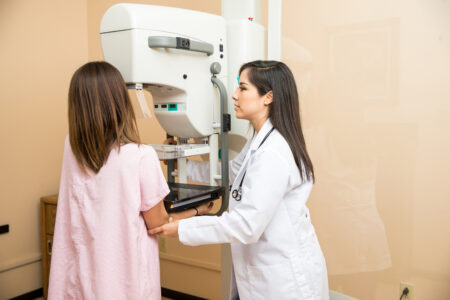
Share On Social!
We are in the “golden age” of cancer drug development with over 50 drugs approved for cancer treatment in the past three years.
But things aren’t golden for everyone.
That is part of the reason why Dr. Amelie G. Ramirez of UT Health San Antonio co-hosted the 2nd Advancing the Science of Cancer (ASCL) conference Feb. 26-28, 2020, in San Antonio.
 The conference united nearly 300 researchers, oncologists, physicians, community leaders, policymakers and students. While looking at Latino cancer, the audience strives for solutions that will work for all.
The conference united nearly 300 researchers, oncologists, physicians, community leaders, policymakers and students. While looking at Latino cancer, the audience strives for solutions that will work for all.
“We have to ensure that cancer treatments—or intervention, prevention, and outreach methods—work for all people,” said Ramirez, who directs the Institute for Health Promotion Research at UT Health San Antonio. The IHPR co-hosted the conference with the Mays Cancer Center.
“That’s why our conference and attendees are so dedicated to making connections, building collaborations, and learning new methods to help us take some very big strides in tackling cancer from all angles, from the lab to the community.”
View the conference agenda for all details.
Future Plans for the ASCL Conference on Cancer
The conference will return in 2022.
Ramirez and her team will publish key research and conference outcomes in the coming months, just as they did for the first conference in 2018.
She also thanked the conference planning committee:
- Edward J. Trapido, Sc.D., FACE, Program Co-Chair, Louisiana State University
- Adelaida M. Rosario, Ph.D., NIMHD
- Ana Carla Cepeda Lopez, Ph.D., Universidad de Monterrey
- Anna M. Napoles, M.P.H., Ph.D., NIMHD
- Barbara Segarra Vasquez, M.T., D.H.Sc., University of Puerto Rico
- Filipa C. Lynce, M.D., Georgetown University
- Frank J. Penedo, Ph.D., University of Miami
- Laura Fejerman, Ph.D., University of California San Francisco
- Laura Magana Valladares, Ph.D., Association of Schools and Programs of Public Health
- Laura Tenner, M.D., UT Health San Antonio
- Mariana C. Stern, Ph.D., University of Southern California
- Martin Mendoza, Ph.D., U.S. HHS
- Matthew P. Banegas, Ph.D., M.P.H., Kaiser Permanente
- Patricia I. Moreno, Ph.D., Northwestern University
- Paulo Pinheiro, M.D., M.Sc., Ph.D., University of Miami
- Sandi Stanford, Alamo Breast Cancer Foundation
“Our committee is excited to continue to shine a spotlight on cancer research advancements, explore new frontiers and gaps in this emerging field, and kick-start discussion on research from bench to bedside,” Ramirez said.
By The Numbers
142
Percent
Expected rise in Latino cancer cases in coming years




[…] Read Full Article: […]